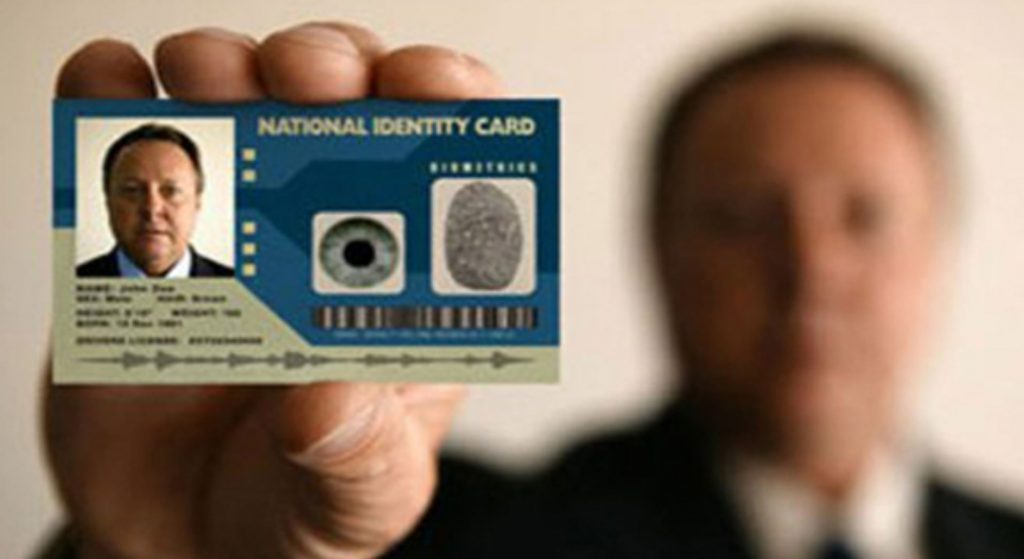Rather than responding to our comments on the latest proposal by the Department of Homeland Security to require ID for airline travel, the DHS has quietly gone to Congress to try to get the law changed so that it doesn’t have to answer us, and to preclude potential litigation to challenge an ID requirement or defend people who try to fly without ID.
A bill introduced earlier this month in the Senate, and already approved in committee, would exempt the implementation and administration of the REAL-ID Act from normal administrative requirements for due process in rulemaking and oversight and transparency in demands by Federal agencies for information.
Included in S. 4133, both as introduced and as amended and reported by the committee, are provisions that would allow the Secretary of Homeland Security, at his or her “discretion”, to issue regulations and administer the REAL-ID Act without regard for the Paperwork Reduction Act (PRA) or the notice-and-comment requirements of the Administrative Procedure Act (APA).
As of now, no comparable bill has been introduced in the House. (Several bills to amend the REAL ID Act are pending in the House, but none of them contain PRA or APA exemptions.) It’s unclear what effect these provisions would have if enacted. All federal agencies are, of course, still subject to Constitutional requirements for due process. But these provisions of S. 4133 appear to be a direct response to the objections we raised in May 2020 to the latest DHS proposal to impose an ID requirement for airline travel without complying with the PRA or the APA.
S. 4133 , the “REAL ID Modernization Act”, was introduced by the chair of the Senate Homeland Security and Government Affairs Committee (HSGAC), and co-sponsored by the ranking minority member of that Committee. At a Senate HSGAC business meeting on July 22nd, S. 4133 was favorably reported to the floor with no discussion or opposition, by a voice vote en bloc with several other “uncontroversial” bills.
Most of the provisions of S. 4133 reflect the lobbying agendas of the travel industry and state governments. But the proposals to exempt REAL-ID Act implementation and administration from the PRA and the APA appeared in neither state government nor industry wish lists for REAL-ID Act “modernization”. Presumably, these exemption provisions came from behind-the-scenes lobbying of Senate HSGAC leaders by the DHS.
The APA requires public notice (through the Federal Register), an opportunity for the public to comment, and an obligation for the agency to consider and respond to those comments before new federal regulations binding on the public are put into effect. The PRA requires similar public notice and comment, and review and approval by the Office of Management and Budget, before any Federal agency can require members of the public to respond to any written or verbal “collection of information”. These are basic due process, transparency, and oversight requirements. This is what democracy looks like at the level of federal administrative procedure.
The proposed exemptions are highly unusual if not unprecedented. There’s a history of exemptions from the APA for certain specialized agencies and activities, but we aren’t aware of an APA exemption for a specific non-military program or activity like the one proposed in S. 4133 for implementation and administration of the REAL-ID Act. The PRA exemptions we are aware of apply to temporary or special-purpose agencies, not to ongoing activities of permanent civilian federal agencies.
From its creation, the DHS has largely ignored both the APA and the PRA. The agency was successfully sued for failing to provide the notice and comment required by the APA when it started requiring air travelers to go through virtual strip-search imaging machines. And its flagrant failure to comply with the PRA would give any traveler who fails or refuses to provide ID or answer other questions at a TSA checkpoint an absolute defense against any sanctions.
The PRA and the APA are the laws that would most likely provide the initial basis for litigation by individuals against imposition by the DHS of an ID requirement for air travel.
The clear intent of these exemption provisions of S. 4133 is to let the DHS off the hook of being required to consider and respond to our pending objections to its PRA notice, and to allow the DHS to impose a new ID requirement for air travel by fiat, without having to give the public a chance to comment on the proposal and without having to face APA litigation or have travelers without ID invoke the PRA in their defense.
This is not the time to give the DHS more discretion to impose new obligations on the public without oversight or due process. Congress should reject the proposed exemptions from the PRA and APA for REAL-ID Act implementation and administration.
Source: PapersPlease.org
Subscribe to Activist Post for truth, peace, and freedom news. Send resources to the front lines of peace and freedom HERE! Follow us on SoMee, HIVE, Parler, Flote, Minds, and Twitter.
Provide, Protect and Profit from what’s coming! Get a free issue of Counter Markets today.



Be the first to comment on "Senate Bill Would Exempt REAL-ID From Due Process And Oversight"